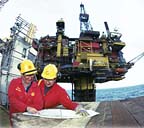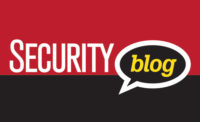Merged Best Practices Beyond Access

that would more easily merge with it business process philosophy.
Shell is a multinational business organization with 65,000 properties around the world.
Having so many locations along with varied security and business needs made it a challenge for Shell to find consistency in its technologies and processes. The introduction of a global IT infrastructure presented the opportunity to achieve global applications and greater structural cohesion. One global application now embraced at Shell is C•Cure 800, a security management system from Software House of Lexington, Mass.
Choosing global application
“We have excellent support from Software House in the U.S. and are able to ensure that version changes, for example, are fully tested within Shell’s locked down environment,” said Bob Martin, a consultant from Integrated Security Systems, Shell Real Estate Services. “We are able to implement C•Cure 800 globally and see the many benefits of its flexibility to enhance business processes. C•Cure 800 helps Shell move beyond the typical security focus and use the application for multiple business purposes.”Once the appropriate teams and boards within Shell had approved it, the company decided on a rolling upgrade for its systems. While the oil company does not require locations to change their systems immediately, each location is now expected to move to C•Cure when existing systems approach renewal or major updates.
Where prior applications utilized multiple servers, the security management system uses only one server to provide an entire geographic region application access. At the same time, each site is able to maintain its own control over site security through the use of the segregated database that complies with Shell’s global naming conventions. The application is managed centrally while the security is controlled by the individual site.
Within each site, security itself is connected through this access control system and all systems are managed more simply. Key features such as integrated security video and advanced reporting allow multiple security solutions to be connected and managed. For example, Shell uses the reporting feature to manage its contract staff.
Business acumen is advanced as well. Through some proactive thinking and the involvement of other company divisions such as its real estate arm, Shell was able to manage company sites more effectively. For example, by tracking the total number of occupants in an office against the total number of potential occupants, the new system provided statistics that showed two buildings were each only 54 percent occupied at any one time.
In addition to the advantages of better security and financial management, the oil company has been able to introduce a greater level of convenience for its staff. Individuals now use a single multi-functional card that allows users to move among various sites with ease. Cardholders can also log onto their computer systems and use vending facilities at certain sites.
Looking for a reprint of this article?
From high-res PDFs to custom plaques, order your copy today!







